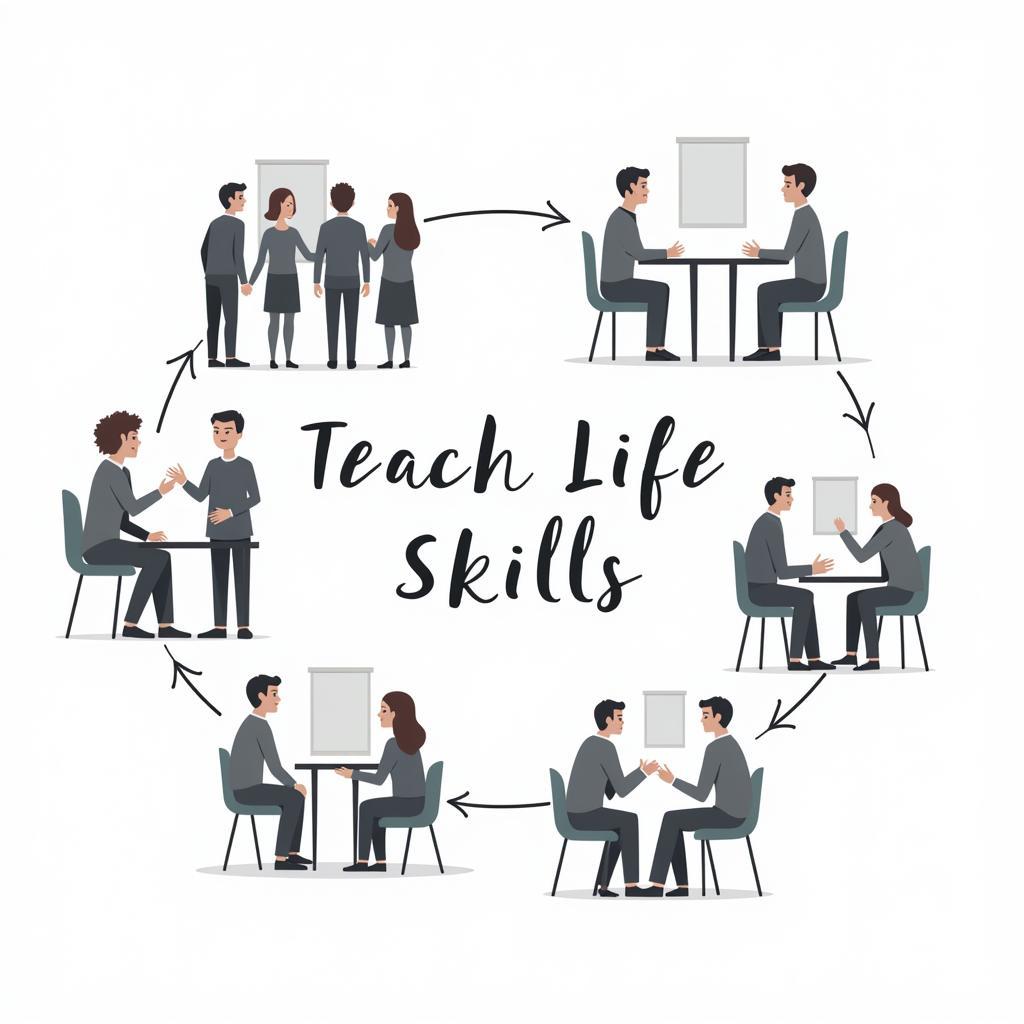Social workers and life skills training are becoming increasingly crucial, equipping individuals, especially young people, with the necessary tools to overcome challenges and succeed in life. This article will explore the role of social workers in developing life skills, as well as the practical benefits it brings to the community.
The Importance of Life Skills in Modern Society
In today’s rapidly evolving and complex society, life skills are not just an advantage but a necessity for individuals to adapt and thrive. Life skills encompass various aspects, from communication and time management to problem-solving, critical thinking, and teamwork. These skills help us build healthy relationships, cope with pressure, make sound decisions, and achieve personal goals.
A lack of life skills can lead to numerous difficulties in life, ranging from job-seeking challenges and social integration issues to mental health problems. Therefore, equipping young people with life skills is a vital task, not only for families and schools but for society as a whole.
The Role of Social Workers in Teaching Life Skills
Social workers play a significant role in supporting and equipping various community members, especially vulnerable individuals, with life skills. They work directly with individuals and groups, develop training programs, organize practical activities, and provide counseling and psychological support.
Life Skills Teaching Methods Used by Social Workers
Social workers employ diverse and flexible methods to teach life skills, including:
- Group discussions: Creating an environment for exchange, sharing experiences, and peer learning.
- Role-playing: Helping learners experience real-life situations and practice coping skills.
- Practical exercises: Reinforcing knowledge and skills through hands-on activities.
- Individual counseling: Providing support for specific issues and personal development guidance.
 Effective methods for teaching life skills, including group discussion, role-playing, practical exercises, and personal counseling.
Effective methods for teaching life skills, including group discussion, role-playing, practical exercises, and personal counseling.
Benefits of Participating in Life Skills Courses Organized by Social Workers
Participating in life skills courses organized by social workers offers many practical benefits, including:
- Enhancing self-confidence and independence.
- Developing communication and relationship-building skills.
- Improving problem-solving and decision-making abilities.
- Managing emotions and coping with stress effectively.
- Career orientation and career development.
According to Ms. Nguyen Thi Lan, an experienced psychologist and social worker, “Life skills are the foundation for each individual’s success and happiness. Investing in life skills development is investing in the future.”
Social Workers and Life Skills for Adolescents
Adolescents are a demographic that particularly needs attention and support in developing life skills. This stage marks many physical and psychological changes, making it easier for them to face difficulties adapting to the social environment. Social workers play a crucial role in accompanying them, helping them overcome challenges and develop holistically.
Mr. Tran Van Nam, Director of the Youth Support Center, shared: “Social workers are a bridge between adolescents and the community, helping them access support resources and develop necessary life skills.”
Conclusion
Social workers and life skills training play a vital role in building a sustainable and developed society. Equipping everyone, especially young people, with life skills is an essential investment for the future.
FAQ
- What are life skills?
- Why are life skills important?
- What is the role of social workers in teaching life skills?
- How can I participate in life skills courses?
- What types of life skills are most important for adolescents?
- Where can I find support from social workers?
- Can life skills help me find a job?
Description of common situations for questions.
Young people often face difficulties in communication, time management, decision-making, and coping with pressure. Social workers can help them solve these problems through counseling sessions, courses, and group activities.
Suggestions for other questions, other articles on the website.
You can learn more about other soft skills such as teamwork, leadership, and critical thinking on our website.